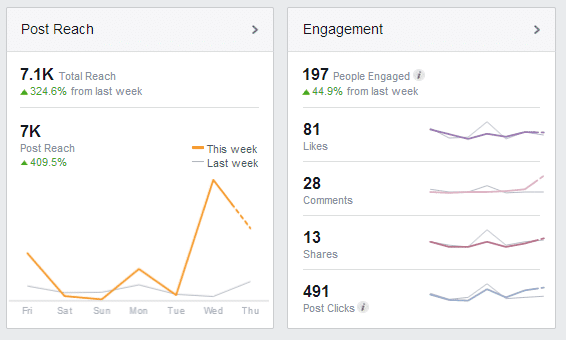Many businesses make the mistake of thinking that the more social media accounts they have, the better it is for their business. However, this usually equates to a waste of time on the business owner’s end. For example, a law firm shouldn’t be wasting time collecting images to use for a company’s Instagram page. It would be more beneficial for said law firm to focus their social media efforts and resources on LinkedIn, Facebook and potentially Twitter.
We’ve compiled a list of some of the social media platforms most used by businesses, with recommendations on how to utilize them to promote your business.
- All businesses should have a company Facebook page

- Post at least three times per week
- If posting multiple times per day, leave at least a three hour gap between posts
- Engage with users by asking questions and responding to their comments/posts
- Spread the love–go to your clients’ company pages and respond to their posts
- Post photos and videos of your products, team members and customers
- Make sure your About page has the correct contact information and plenty of keywords
- Check your Insights frequently to see the patterns of what your users enjoy
- Great for companies that can provide the public with facts, tips and/or news
- Utilize common hashtags to expand your reach, such as #ThrowbackThursday
- Once you’ve established a decent follower base, create your own unique hashtag for your company
- Don’t look like a spambot: keep your content relevant and don’t use too many hashtags
- Interact with your followers by responding to their comments, retweeting them, and giving shout-outs
- Great for companies with physical products, companies that have photogenic services (such as a dog groomer), restaurants, etc. Basically if your business is photo-worthy, then you should be on Instagram.
- Post a variety of different photos and videos, such as employees, customers, office pets, company milestones, products, events, and more
- Utilize hashtags to spread your reach and gain followers
- Engage in other peoples’ photos by providing comments and likes
- Follow your followers back. While this is the case for all social media platforms, Instagram has been known as the ego-network, so it’s best to appease your fans.
- Reward your followers with contests and promotions
- All businesses should have a company page
- Post about industry news, company milestones and relevant resources
- Keep posts professional and to-the-point
- Share company posts on your personal LinkedIn account to gain more followers
- Great for artists and companies that can provide tutorials
- Use keywords in your titles and meta-descriptions so people can organically find your videos
- Once you create your channel, make sure you have at least five videos ready to be posted once per week so you don’t lose traction
- Respond to comments and engage your users, even if they’re negative
- Link your videos to your website and always include a call-to-action
If you have any questions about social media platforms and how they can help your business thrive, please do not hesitate to contact us. Nerd Crossing can help set up and maintain your social media accounts through posts, descriptions with keywords, responses to comments, video updates, user acquisition, reachout, and much more. Properly-used social media platforms are greatly helpful for building brand identity, gaining new customers and connecting with existing customers.
